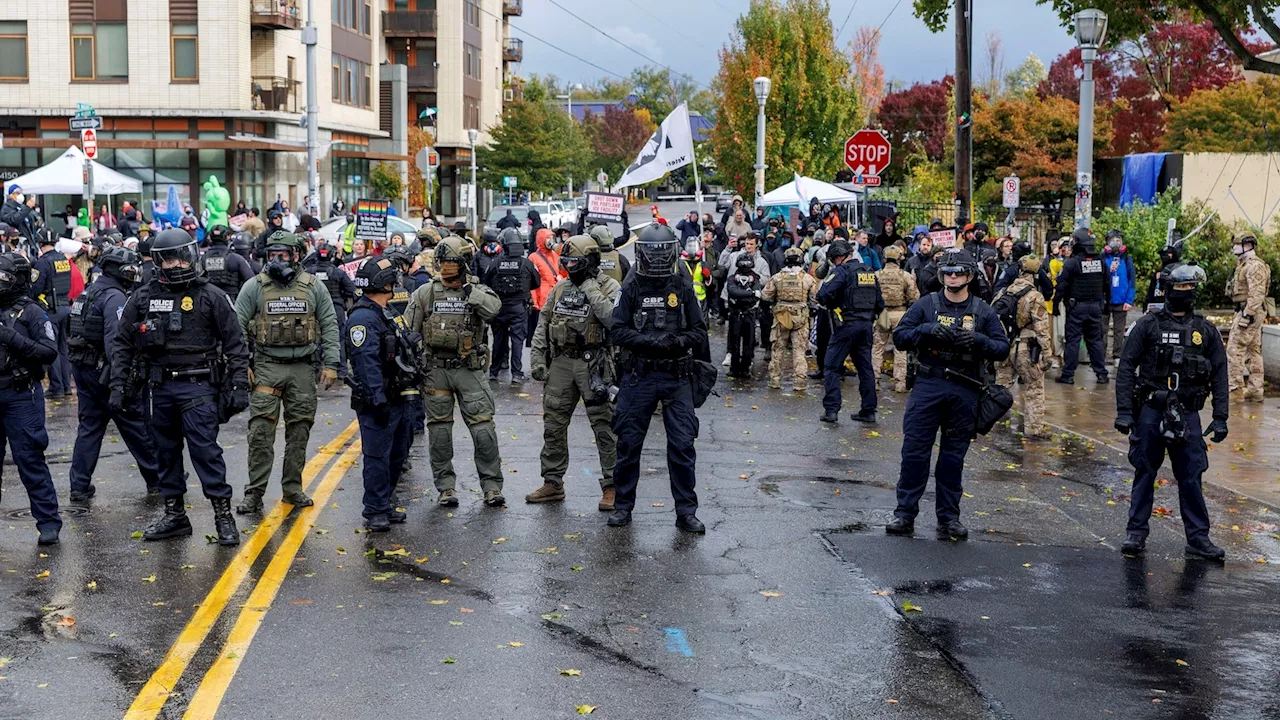Politics
Federal Judge Blocks Trump’s National Guard Deployment to Portland

A federal judge has permanently blocked the deployment of National Guard troops to Portland, Oregon, ruling that former President Donald Trump exceeded his authority in the move. This decision follows a three-day trial that concluded recently, during which the court examined the legality of the administration’s actions in response to ongoing protests related to immigration policies.
In her ruling, U.S. District Court Judge Karin Immergut stated, “The evidence demonstrates that these deployments, which were objected to by Oregon’s governor and not requested by the federal officials in charge of protection of the ICE building, exceeded the president’s authority.” This decision highlights significant questions about the extent of executive power and the balance of authority between federal and state governments.
During the trial, Judge Immergut dismissed the Trump administration’s argument that the protests constituted a rebellion, which would justify federal intervention. She noted, “When considering these conditions that persisted for months before the President’s federalization of the National Guard, this Court concludes that even giving great deference to the President’s determination, the President did not have a lawful basis to federalize the National Guard.”
The ruling is particularly impactful as it comes amid broader tensions surrounding federal responses to protests in various U.S. cities. Judge Immergut acknowledged the larger implications of her ruling, stating that the legal issues involved would likely be addressed by a higher court.
Concerns over the deployment were voiced by local officials, including Oregon Governor Kate Brown, who opposed the federalization of the National Guard. The ruling reinforces the view that local authorities should have significant say in matters concerning public safety and law enforcement.
In a broader context, Trump had also attempted to deploy National Guard troops to Chicago, facing similar pushback from local officials. The judge’s decision marks a crucial moment in the ongoing debate over federal authority and local governance, particularly in the realm of public protests and civil rights.
As the legal battle unfolds, it remains to be seen how appeals will shape the future of National Guard deployments in response to civil unrest. The case underscores the importance of judicial oversight in matters involving executive power and the rights of citizens to assemble and protest.
-

 Science3 weeks ago
Science3 weeks agoIROS 2025 to Showcase Cutting-Edge Robotics Innovations in China
-

 Lifestyle3 weeks ago
Lifestyle3 weeks agoStone Island’s Logo Worn by Extremists Sparks Brand Dilemma
-

 World3 weeks ago
World3 weeks agoBravo Company Veterans Honored with Bronze Medals After 56 Years
-

 Politics3 weeks ago
Politics3 weeks agoJudge Considers Dismissal of Chelsea Housing Case Citing AI Flaws
-

 Health3 weeks ago
Health3 weeks agoStartup Liberate Bio Secures $31 Million for Next-Gen Therapies
-

 Health3 weeks ago
Health3 weeks agoTop Hyaluronic Acid Serums for Radiant Skin in 2025
-

 Top Stories3 weeks ago
Top Stories3 weeks agoIndonesia Suspends 27,000 Bank Accounts in Online Gambling Crackdown
-

 Sports3 weeks ago
Sports3 weeks agoMel Kiper Jr. Reveals Top 25 Prospects for 2026 NFL Draft
-

 Science3 weeks ago
Science3 weeks agoArizona State University Transforms Programming Education Approach
-

 Lifestyle3 weeks ago
Lifestyle3 weeks agoMary Morgan Jackson Crowned Little Miss National Peanut Festival 2025
-

 World3 weeks ago
World3 weeks agoHoneywell Predicts Record Demand for Business Jets Over Next Decade
-

 Sports3 weeks ago
Sports3 weeks agoYamamoto’s Mastery Leads Dodgers to 5-1 Victory in NLCS Game 2









